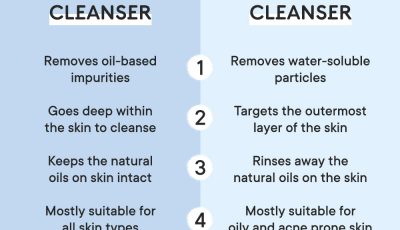
We understand how uncomfortable and irritating dry skin can be, so we want to provide you with some practical strategies for relief. In this article, we’ll discuss some helpful tips on how to manage dry, itchy skin. You’ll learn about the importance of moisturizing, choosing the right products for your skin type, and incorporating healthy habits into your daily routine. By the end of this article, you’ll have a better understanding of how to keep your skin hydrated and itch-free.
Understanding the Causes of Dry Itchy Skin
Dry and itchy skin can be a frustrating and uncomfortable condition to deal with. The constant urge to scratch your skin can disrupt your daily life and even affect your sleep. To effectively manage this condition, it is important to first understand its causes. There are both external triggers and internal factors that contribute to dry itchy skin.
Identifying External Triggers
External triggers are environmental factors that can cause or worsen dry itchy skin. These triggers include harsh weather conditions, such as cold and dry winters or hot and humid summers. Exposure to these extreme conditions can strip the skin of its natural moisture, leading to dryness and itchiness.
Other external triggers include irritants such as certain soaps, detergents, and clothing fabrics. Using harsh soaps and detergents can strip away the protective oils on your skin, leaving it dry and susceptible to itchiness. Similarly, wearing clothing made from synthetic fabrics can irritate your skin and exacerbate dryness.
Exploring Internal Factors
In addition to external triggers, there are internal factors that can contribute to dry itchy skin. One common internal factor is a lack of hydration. Not drinking enough water can cause your skin to become dehydrated, resulting in dryness and itchiness. Certain medical conditions, such as eczema and psoriasis, can also cause dry and itchy skin.
Stress and anxiety can also worsen the symptoms of dry itchy skin. When you are stressed, your body releases stress hormones that can disrupt your skin’s natural balance, leading to dryness and itchiness. Furthermore, scratching your skin as a result of itchiness can cause further damage and inflammation.
Preventative Measures for Dry Itchy Skin
Although it may not be possible to completely eliminate all external triggers or internal factors, there are preventive measures you can take to manage dry itchy skin effectively.
Moisturizing Regularly
One of the most crucial steps in managing dry itchy skin is to moisturize regularly. Using a good quality moisturizer can help replenish the lost moisture in your skin and prevent further dryness. Look for a moisturizer that contains ingredients like hyaluronic acid, glycerin, or ceramides, as these can help retain moisture in your skin.
Apply moisturizer at least twice a day, especially after showering or washing your hands. This will help seal in the moisture and keep your skin hydrated throughout the day. Additionally, consider using a heavier, more emollient moisturizer at night to provide extra hydration while you sleep.
Avoiding Harsh Soaps and Detergents
To prevent further dryness and irritation, it is essential to avoid using harsh soaps and detergents. Opt for gentle, fragrance-free cleansers that are specially formulated for sensitive skin. These cleansers are less likely to strip away the natural oils on your skin and cause further dryness.
Similarly, when doing laundry, choose mild detergents that are free from fragrances and harsh chemicals. This will help minimize skin irritation caused by the residues left on your clothes. Additionally, avoid using fabric softeners and dryer sheets, as they can contain irritants that can worsen dry itchy skin.
Creating a Skincare Routine for Dry Itchy Skin
Developing a skincare routine specifically tailored for dry itchy skin can significantly improve its overall condition. Here are some essential steps to include in your routine:
Choosing the Right Cleanser
Start by selecting a gentle cleanser that is specifically formulated for dry, sensitive skin. Look for products that are free from harsh ingredients like alcohol and sulfates. These can strip away the skin’s natural oils and aggravate dryness.
When washing your face, use lukewarm water instead of hot water. Hot water can further dehydrate your skin and intensify itchiness. Pat your skin dry gently with a clean towel, leaving some moisture on the skin. This will help lock in hydration when you moisturize.
Applying Hydrating Products
After cleansing, apply a hydrating toner or essence to provide an extra layer of hydration to your skin. Choose products that contain ingredients like hyaluronic acid, which can attract and retain moisture.
Follow up with a moisturizer that is suitable for your skin type. Look for moisturizers with ingredients like shea butter, ceramides, or natural oils that can nourish and hydrate your skin. Additionally, consider using a moisturizer with SPF during the day to protect your skin from harmful UV rays.
Exploring Natural Remedies for Dry Itchy Skin
Alongside your skincare routine, incorporating natural remedies can help soothe and relieve dry itchy skin. Here are a couple of options you can try:
Utilizing Aloe Vera’s Soothing Properties
Aloe vera is a plant known for its soothing and healing properties. Its gel-like substance can hydrate and calm irritated skin. Apply pure aloe vera gel directly onto the affected areas and leave it on for a few minutes before rinsing off. This can provide instant relief from itchiness and reduce inflammation.
Trying Oatmeal Baths
Oatmeal baths can help alleviate dry itchy skin by providing a protective film over your skin. Grind oatmeal into a fine powder and add it to a warm bath. Soak in the oatmeal-infused water for around 15 minutes, then gently pat your skin dry. The oatmeal will help moisturize and soothe your skin, providing relief from itchiness.
Managing Dry Itchy Skin During Different Seasons
Seasonal changes can have a significant impact on your skin, especially if you have dry itchy skin. Here are some tips to help you manage your skin during different seasons:
Adapting to Winter Weather
During the winter months, the cold and dry air can worsen dry itchy skin. To combat this, switch to a richer, more emollient moisturizer to provide extra hydration. Additionally, avoid spending too much time in hot showers or baths, as hot water can strip away your skin’s natural oils.
Wear layers to protect your skin from the cold and windy weather. Choose clothing made from natural, breathable fabrics like cotton or silk. These fabrics are less likely to irritate your skin and trap moisture against your body.
Protecting Skin in Hot Summers
In hot and humid summers, it is important to protect your skin from excessive heat and sweat. Opt for lightweight, non-comedogenic moisturizers that won’t clog your pores. Look for moisturizers with a gel or water-based formula, as these are easily absorbed by the skin.
Wear loose-fitting, lightweight clothing made from breathable fabrics like linen or cotton. These fabrics allow air circulation and prevent sweat from getting trapped against your skin, reducing the risk of irritation and itchiness.
Dietary Changes for Improved Skin Health
Making dietary changes to improve your skin health can also help manage dry itchy skin. Here are a couple of dietary tips to consider:
Increasing Omega-3 Fatty Acids Intake
Omega-3 fatty acids are essential fats that promote skin health and hydration. Increase your intake of foods rich in omega-3 fatty acids, such as fatty fish like salmon or mackerel, walnuts, chia seeds, and flaxseeds. Alternatively, you can also consider taking fish oil supplements under the guidance of a healthcare professional.
Consuming Foods Rich in Antioxidants
Antioxidants help protect your skin from damage caused by free radicals. Include antioxidant-rich foods in your diet, such as berries, dark leafy greens, tomatoes, and green tea. These foods can help reduce inflammation and support overall skin health.
Recognizing When to Seek Medical Help
While most cases of dry itchy skin can be managed with the tips mentioned above, there are instances where medical intervention may be necessary. Here are some signs that indicate it’s time to seek medical help:
Considering Dermatologist Consultation
If your dry itchy skin persists despite following a consistent skincare routine and making lifestyle changes, it may be time to consult a dermatologist. They can evaluate your skin condition, determine the underlying cause, and provide you with appropriate treatment options.
Understanding Prescription Treatments
In some cases, over-the-counter remedies may not effectively manage dry itchy skin. Your dermatologist may prescribe topical medications or oral medications to alleviate your symptoms and treat any underlying conditions.
Tips on Easing Discomfort and Itchiness
In addition to following a proper skincare routine and incorporating natural remedies, there are some tips that can help ease discomfort and itchiness temporarily:
Applying Cold Compresses
Applying a cold compress to the affected areas can provide immediate relief from itchiness and inflammation. Wrap some ice cubes in a clean cloth or use a cold gel pack and gently press it against your skin. The cold temperature will help numb the itchiness and reduce redness.
Using Anti-Itch Creams
Over-the-counter anti-itch creams or lotions containing ingredients like hydrocortisone can provide temporary relief from itchiness. Apply a small amount to the affected areas and avoid scratching or rubbing the skin.
Avoiding Common Mistakes in Managing Dry Itchy Skin
To effectively manage dry itchy skin, it is important to avoid common mistakes that can worsen your condition. Here are a couple of mistakes to avoid:
Over-exfoliating the Skin
Exfoliating your skin is important to remove dead skin cells, but overdoing it can damage the skin’s natural barrier and worsen dryness. Limit exfoliation to once or twice a week, and use gentle exfoliants that won’t strip away your skin’s moisture.
Using Excessive Hot Water
While hot showers may feel relaxing, they can actually strip away your skin’s natural oils, leading to dryness and itchiness. Opt for lukewarm water instead and avoid spending too much time in the shower or bath.
Conclusion
Managing dry itchy skin can be a challenging task, but by understanding its causes and implementing the right preventive measures, skincare routine, and lifestyle changes, you can effectively manage the condition. Remember to moisturize regularly, choose gentle cleansers, and incorporate natural remedies when necessary. Adapt your skincare routine to the changing seasons, make dietary changes to support skin health, and seek medical help if needed. By following these tips and avoiding common mistakes, you can find relief from dry itchy skin and improve the overall health of your skin.






